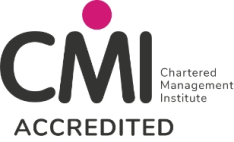CMI Level 4 Diploma in Management and Leadership Training Course Outline
Our CMI Level 4 Diploma in Management and Leadership Training Course is thoughtfully structured to meet the 145 Guided Learning Hours requirement, providing delegates with 32 hours of comprehensive course material and 113 hours of interactive e-learning content.
Qualification Level: Diploma
Minimum Credit Value: 39
The following topics will be comprehensively covered in the online instructor-led training.
Unit (4001V1): Managerial Styles and Behaviours (6 Credits)
Module 1: Human Nature and Managerial Behaviour
- Models which Make Suppositions about Human Nature and Behaviour at Work
- How Attitudes and Assumptions can Influence Managerial Behaviour?
- Model of Managerial Style in which the Manager can Apply Skills to Identify, Study, and Review their Patterns of Behaviour
Module 2: Influence Managerial Behaviour
- Styles of Management
- Identify Measures of Managerial Effectiveness
- Links Between Management Style and Managerial Effectiveness and Efficiency
Module 3: Apply a Range of Management Styles
- Situations which Would Require the Application of Differing Management Styles and Behaviour
- Relationship Between Individual Managerial Performance and Expected Organisational Managerial Performance and Behaviour
Unit (5001V1): Personal Development as a Manager and Leader (6 Credits)
Module 4: Personal Professional Development
- Identify the Importance of Continual Self-Development in Achieving Organisational Objectives
- Assess Current Skills and Competencies Against Defined Role Requirements and Organisational Objectives
- Identify Development Opportunities to Meet Current and Future Defined Needs
- Construct a Personal Development Plan with Achievable but Challenging Goals
Module 5: Resources Required for Personal Professional Development (PPD)
- Resources Required to Support the Personal Development Plan
- Develop a Business Case to Secure the Resources to Support the Personal Development Plan
Module 6: Implement and Evaluate the Personal Development Plan (PPD)
- Processes Required to Implement the Personal Development Plan
- Impact of the Personal Development Plan on the Achievement of Defined Role Requirements and Organisational Objectives
- Review and Update the Personal Development Plan
Module 7: Support and Promote Staff Welfare
- Relationship Between Staff Welfare and Organisational Objectives
- Process for Assessing Staff Welfare
- Actions to be Taken by the Manager in Dealing with a Staff Welfare Issue
- Communicate Responsibilities for Staff Welfare to the Team
- Records that may be Maintained to Demonstrate that Staff Welfare is Supported
After completing the instructor-led training, we'll move to our Self-Paced Training to complete the certification.
Unit (4002V1): Managing Stakeholders’ Expectations (7 Credits)
Module 8: Organisational Stakeholders
- Differentiate Between Relevant Organisational Stakeholders
- Distinguish Between Primary and Secondary Organisational Stakeholders
Module 9: Primary and Secondary Stakeholder Expectations
- Differentiate Between the Expectations of Primary and Secondary Organisational Stakeholders
- Identify Monitoring Systems for Analysing the Achievement of Primary and Secondary Organisational Stakeholder Expectations
Module 10: Provisions Offered to Organisational Stakeholders
- Identify Provisions Offered to Primary and Secondary Organisational Stakeholders
- Develop Provisions for a Primary or Secondary Organisational Stakeholder that would Impact Stakeholder Expectations
- Devise a Method Which Reviews the Impact of the Developed Provisions on the Stakeholder
Unit (4003V1): Organisational Culture, Values, and Behaviour (7 Credits)
Module 11: Culture to an Organisation
- Framework for Analysing Organisational Culture
- Internal and External Factors that could Influence Organisational Culture
- Current Organisational Culture
Module 12: Individual and Organisational Performance
- Values to an Organisation
- Values to an Individual
- How the Manager’s Personal Values Can Influence Interaction with Team Members?
Module 13: Relationship Between Values and Behaviour
- How Organisational Values Can Affect Organisational Behaviour?
- How Organisational Values Can Affect Individual Behaviour?
- Identify How Individual Values Can Influence the Behaviours of a Team
Unit (4004V1): Understanding Team Dynamics (7 Credits)
Module 14: Differences Between Groups and Teams
- Differences Between a ‘Group’ and a ‘Team’
- Differences Between Groups and Teams for the Manager
- Explain Situations When the Formation of a Group and/or a Team Would be Necessary
Module 15: Concept of Formal and Informal Group Norms
- Definitions of Formal and Informal Group Norms
- Evolution of Formal and Informal Group Norms
- Process of Changing Formal and Informal Group Norms
- Value of Formal and Informal Group Norms
Module 16: Understand Group Development and Maturity
- Stages of Group Development and Maturity
- Factors Which Could Influence the Cohesiveness of Work Groups
- Advantages and Disadvantages of Cohesive Work Groups
Module 17: Management of Remote, Displaced or Virtual Teams
- Advantages of a Remote, Displaced or Virtual Team
- Disadvantages of a Remote, Displaced or Virtual Team
- Analyse the Communication and Leadership Skills Required to Manage a Remote, Displaced or Virtual Team
Unit (4005V1): Management Report Writing (7 Credits)
Module 18: Purpose of Management Reporting
- Determine Circumstances Which Could Require A Management Report
- Compare the Methods of Management Reporting available to a Manager
- Justify a Method of Management Reporting to Achieve a Management Objective
Module 19: Be Able to Construct a Written Management Report
- Construct the Terms of Reference for a Report
- Identify the Component Parts of a Written Management Report
- Produce Conclusions and Recommendations that Meet the Report Objective or Terms of Reference
Module 20: Collection and Analysis of Data and Information Required for a Written Management Report
- Distinguish Between Data and Information
- Create Criteria to Select Data and Information
- Evaluate Methods to Analyse Data and Information
 To help and support our clients we are providing a limited number of 250 daily discount codes. Hurry, first come, first served!
To help and support our clients we are providing a limited number of 250 daily discount codes. Hurry, first come, first served!



























 If you wish to make any changes to your course, please
If you wish to make any changes to your course, please


